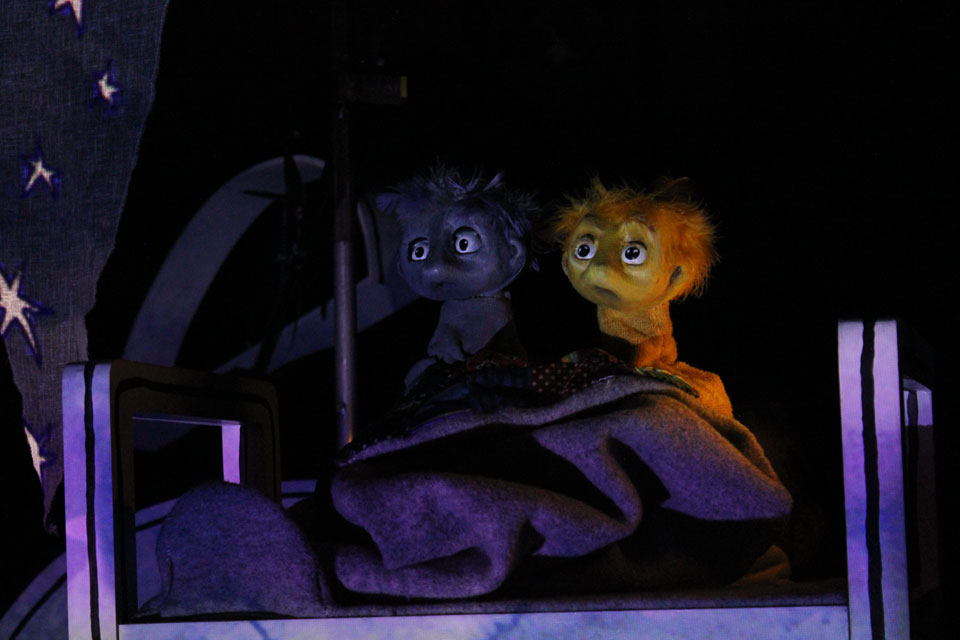In a time when hostility toward migrants is once again on the rise in the West—despite countless historical warnings about the destructiveness of xenophobia—migration remains an essential part of the human experience. Movement is at the heart of life itself. Whether we cross national borders or simply move from one neighborhood to another, we all experience displacement in some form. In that sense, the questions of home and belonging are deeply existential and universally human.
Vera Rozanova, a theatre and puppetry artist who left her native Russia for France in 2011, explores these themes in her play Don’t Wait for Me…, produced at La neige sur les cils Theatre in Nantes and recently performed at the Novi Sad Theatre Festival. In this poetic, darkly whimsical production, Rozanova conjures a world where houses grow legs and walk away from their inhabitants. It’s a surreal inversion of reality—where we do not leave home, but rather, home leaves us. Still, it reflects a painful truth: becoming homeless is often not a choice.
The play, aimed at children aged six and up, follows a small, gray figure on a quest to find the house that left him. Along the way, he encounters others like himself, as well as more walking houses, each with a story of its own. Rozanova, who both wrote and directed the play, also performs all the puppet roles herself, showcasing remarkable dexterity and emotional nuance across multiple characters during the 40-minute performance.
Visually, the play is enveloped in dark, bluish hues, evoking a never-ending night. Designed by Lucille Regier and Sammy Barra, the set creates a dreamlike landscape filled with lanky, tousled human figures who seem perpetually lost, as though just awoken from sleep in a world they no longer recognize. Yet amidst the confusion and loss, small moments of connection—between characters and their anthropomorphic homes—inject warmth and hope into the narrative.
Rozanova’s performance is particularly impressive not only for her puppeteering, but also for her multilingual delivery. While the play is performed in French and Russian in Nantes, she adapted it for Novi Sad with French, Serbian, and English, with English subtitles providing accessibility for an international audience. This multilingual approach subtly highlights another migrant reality: the fragmented, in-between linguistic identity that often comes with displacement. Migrants may speak several languages, yet feel fully at home in none. This linguistic and cultural ambiguity permeates the performance with a palpable sense of melancholy.
Still, migration is not only marked by sadness. It also brings richness and diversity. Isn’t it a beautiful thing that children in both Nantes and Novi Sad can engage with Don’t Wait for Me… in their own languages, while also hearing unfamiliar ones? It’s an experience that broadens horizons and deepens empathy. That’s why, when Rozanova—animating a migratory bird puppet—breaks the fourth wall at the end of the show and tells the audience, “This is my story, but it could be yours too,” it’s both a gentle warning and a hopeful promise. Migration, she reminds us, brings new challenges and sorrows—but also the possibility of unexpected beauty and growth.
– Borisav Matić




